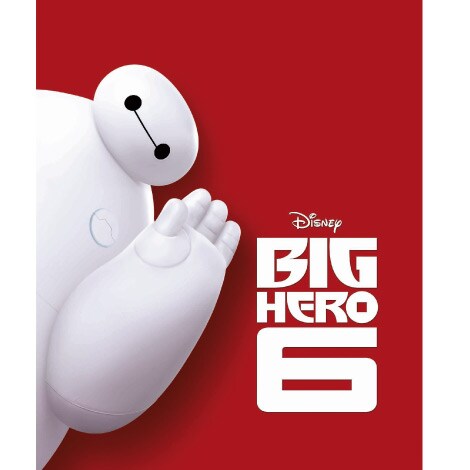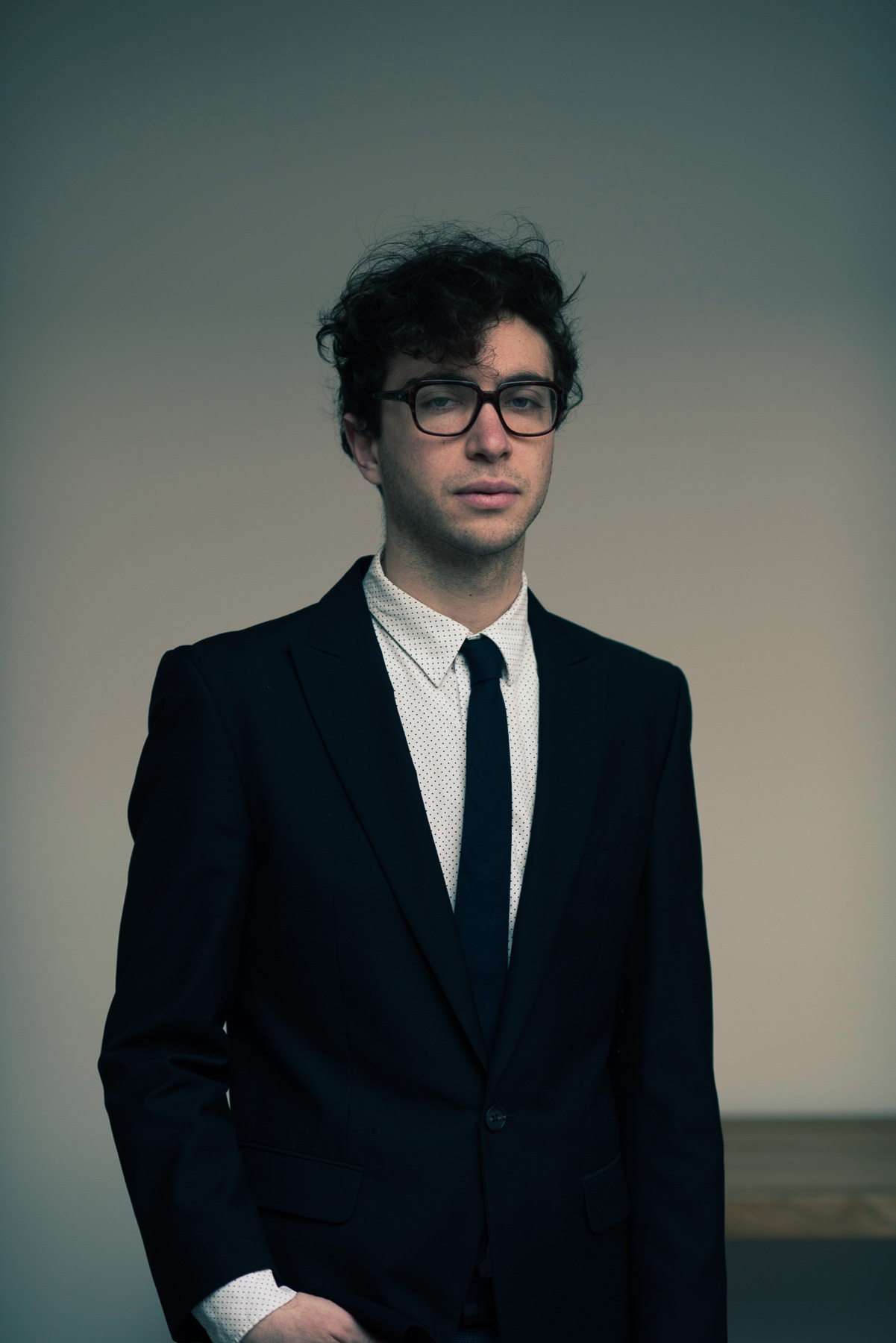I’m at the microphone for the first round of the 32nd Annual National Empathy Bee, and I can’t feel a thing.
*
ROUND ONE
Good morning, Alex. A man is sitting in a banker’s office. The banker says: “You have great collateral — I’ll give you credit for that.” Is this a joke? If so, why is it funny?
*
Press photographers in the front row dazzle my eyes with flashbulbs. The hotel ballroom stretches behind them, vast and dim, a fog bank of blurry faces. Mom sits somewhere in the audience, but I’ll never spot her with the naked eye from up here on the stage.
Fortunately, my brain implant has an image processing feature. I scroll through options in my mind, zooming, enhancing, upscaling. There she is, slumped on a straight-backed gilt chair with her “guardian of contestant” credentials drooping around her neck. The seat beside her, Dad’s seat, is empty.
*
ROUND TWO
Here is your next question, Alex. A middle-aged man posts pictures of his neighbor’s new sports car on social media, but he says the pictures are of his own car. Give two different reasons why he might be doing this.
*
The National Spelling Bee is deader than ancient Greek. So are mathletes and chess club. Now that every middle-school kid is running around the playground with a microchip in their head that syncs directly to the internet, traditional tests of academic knowledge are pointless. But those of us who aren’t good at sports still need something to do in the afternoons, so we get Empathy Bee.
The goal of the famous Turing Test is to stump a computer with questions that would be easy for a human. Empathy Bee is sort of like that. But the questions here are tricky for people, too. We’re supposed to be showing off our human potential by solving problems our brain implants can’t. It’s great practice for college essays, I’ve heard.
Some contestants spend a lot of time developing software to hack Empathy Bee and its hundred-thousand dollar grand prize, building databases of questions and using deep learning to predict responses. Veterans like me call them “chip kiddies.” The Bee stays a step ahead of technology, you only get sixty seconds at the mic, and it’s almost always better to go with your gut.
The problem right now is, my gut is missing in action. I’m used to nerves — they give me an edge — but not this dull incoherence.
*
ROUND THREE
Alex, you are late for class. You see two older kids bullying Ben. You know that if you stand up for Ben, he will think you are his friend. You don’t want to be friends with Ben, and you are scared of the older kids. What should you do?
*
I stumble on the third round question, speaking in half sentences, and I see the head judge’s hand hover scarily close to the dreaded buzzer before she decides to accept my answer.
Empathy Bee uses five judges at the national level. They score our responses on a ten point scale and determine if we’ve done well enough to advance. Because Bee questions are highly subjective, the judges take a lot of crap every year from angry parents, but I guess they’re used to it. Some of them used to judge beauty pageants.
Last year, when I got buzzed out in the fourth round on an answer I still think was pretty good, Mom spent two hours outside the judges’ greenroom demanding an explanation. She didn’t get one, and I don’t think I’ll get that kind of support from her this year. She’s spent the last few days wan and distant, refusing to talk about anything except nothing. She won’t discuss what happened the night Dad left.
*
ROUND FOUR
Alex, you are four years old. You have lost sight of your family in a crowded theme park. How do you feel, and why?
*
We get a restroom break before the fourth round. Standing in a line of seventy kids with nervous bladders, I flip my implant out of “do not disturb” mode and check my messages. The Bee jams network communications in the ballroom to block hints from parents or coaches, but here on the upper level of the hotel I’ve got a little bit of service.
When I feel the message coming in from Dad, the little jolt of electricity seems to travel right down my spine into my stomach. I haven’t heard from him in eight days.
Hey son. Good luck up there. His words jab into my mind like pins.
I message him back, keeping my eyes fixed on the tiled floor as neurons flow in and out of the implant. Where are you? Don’t you know the bee is on right now?
Yeah, I’m watching it on TV. You look great.
Is she with you?
Come on, Alex.
No, I want to know, are you with your mistress?
Long pause. Her name’s Cynthia, okay?
I don’t want to know anything about her.
*
ROUND FIVE
Alex, here is an excerpt from a child’s picture book. Please read it to the judges. Watch our body language carefully. Slow down, point to the pictures, or explain the story if it appears that we are losing interest or getting confused.
*
I don’t know how I’m still in the competition. Answers spring out of me without a second thought, like I’m one of the robots the Bee is designed to outwit. Three years of experience and hundreds of hours of preparation are keeping me alive, somehow. For now.
I started preparing seriously for the Bee in fifth grade, sitting at the kitchen table doing practice tests with Mom. When I got frustrated and wanted to give up the whole idea, she would simply put the books away and bring them out again the next day. Around the time I won my first regional playoff, her enthusiasm became mine, and I didn’t need any more encouragement to study.
Dad helped out, too, in the early days. I remember lying with my face in the living room carpet, feeling rather than hearing his deep voice reading me the prompts. I’m not sure when that stopped. This past year, he mostly lay on the couch in the evenings, eyes rolled up in his head, communing with his implant. Keeping up with work stuff, he claimed.
*
ROUND SIX
Hi again, Alex. Let’s pretend you have a young brother, Matt, who has ADHD. Day after day, he invades your personal space and messes up your belongings. How can you help him learn a sense of boundaries?
*
I tried to look up “adultery” in my implant yesterday. I didn’t get very far at first. The chip has parental controls enabled. My parents’ implants, however, do not.
My parents aren’t especially chip-savvy. They leave their implants unsecured on our shared network at home. That means I can pair my implant wirelessly with theirs and use their access credentials to get online, especially if they’re sleeping and unlikely to notice. That’s usually how I download the Q-rated headgames that my friends are playing. I used to be able to get those on my own implant, before Mom read some article about the supposed negative effects of virtual reality inside developing brains.
If Dad could do what he did — which is to say adultery, noun, voluntary sexual intercourse between a married person and someone else who is not his or her spouse — I don’t see what’s the big deal about a stupid game.
*
ROUND SEVEN
Tell me a story about a time when you experienced a feeling of schadenfreüde.
*
The contestants are dropping out fast now. The questions get a lot harder in this round, separating the championship contenders from the chip kiddies. Aliya Dhumal, last year’s champ, fails to explain why a controlling parent would trust alternative medicine over science. She leaves the stage after the buzzer with her head down. It looks like I’m going to make the top twenty, maybe more.
I go to the restroom again during the commercial break halfway through the round. I don’t need to pee — I just want to see if Dad has messaged me again. He hasn’t.
I really wish you were here.
He responds after a minute. Me too, Alex. I’m sorry things worked out like this.
You could still make it. We have your entry badge and everything. I can see your seat from the stage.
Look, you know things with me and your mom are rough right now.
Yeah. I know.
Alex.
What?
I love you, okay? You have every right to be upset about all this. I hope you’ll understand some day that I had to do what was right for me.
Alex?
I reach behind my ear and flip the little switch that comes out of the implant, cutting off all access to the chip. My arms and legs are shaking.
*
ROUND EIGHT
You are a politician at a state dinner. The Italian ambassador starts telling a joke that you know will offend the Japanese prime minister. How do you intervene so that nobody’s feelings are hurt?
*
Mom insists I can’t blame myself for what happened that evening, but how can I not? I was the one who paired Dad’s implant with mine while he was sleeping on the couch after dinner. I only wanted his headgame password. I didn’t mean to look at his messages, and when I saw the pictures of the naked woman I didn’t know what to do. I probably shouldn’t have told Mom.
No, I had to tell somebody. I couldn’t carry that secret.
Maybe I should have kept it to myself until after the finals. I would have felt the embarrassment and the guilt, Dad’s guilt, wrenching my stomach, but at least I would have felt something besides this emptiness.
The kid sitting onstage beside me, Ginnie Worley from Cedar Rapids, mutters to herself each time she thinks the judges are about to buzz somebody. “He’s gone.”
*
ROUND NINE
Alex, Oscar Wilde once wrote that “each man kills the thing he loves.” If you truly love something, why would you let it go?
*
The flashbulbs blast in my face, leaving floaters all around my field of vision. It’s like looking into a Petri dish. My implant is still disabled, and I have no idea how to answer this question. I don’t know why someone kills their love. I don’t even know what love is supposed to be. I’m too young to be here.
The head judge leans into her microphone. She’s an elderly woman with a constantly sympathetic expression. “Thirty seconds, Alex.”
I could turn on the implant and search the database for Oscar Wilde. That’s what a chip kiddie would do, but there’s no time now.
Did I kill Dad’s love for me when I accessed his implant? If I hadn’t done that, if I hadn’t learned who he was, wouldn’t we still be together? Or was he bound to leave anyway, like Mom says, in which case nothing matters and this whole question is stupid?
“Alex. Time’s up. If you love something, why let it go?”
I close my eyes and speak so softly into the microphone that I can barely hear myself. “Because I have to do what’s right for me.”
“Please repeat that toward the judges?”
I turn toward the judges’ table. “I have to do what’s right for me.”
The judges put their heads together, murmuring. Somewhere behind me Ginnie Worley hisses jubilantly. “He’s gone.”
The sound of the buzzer strikes me right in the chest, vibrating all through my body. The head judge sighs, looking as always like she just put down a beloved family pet. “I’m sorry, Alex, that’s not an acceptable answer.”
I look out beyond the microphone, over the judges’ table, past Mom and the sea of people, right into the TV camera on the platform at the back of the ballroom. I look through the lens of the camera into the hotel room where I imagine Dad sits in bed with his arm around his mistress. I speak slowly and with emphasis, the way they teach you. “You’re darn right it isn’t.”
Then I walk off the stage and into that strange holding pen for just-eliminated contestants called the cry room. Mom is there, and I put my head on her shoulder, and all of a sudden I have more feelings than I know what to do with.
© 2019 by Forrest Brazeal
Author’s Note: I competed twice in the National Spelling Bee and still follow it from afar. In my opinion, the Bee is fundamentally broken in the digital age — kids keep getting smarter and prep tools get better, but the dictionary stays the same. I started thinking about the evolution of academic competitions, and came up with what I think would be a much more interesting event. (I’d watch it, anyway!)
 Forrest Brazeal is a software engineer, writer, and cartoonist based in rural Virginia. His short stories have appeared or are forthcoming in Daily Science Fiction, Abyss & Apex, StarShipSofa, and elsewhere. Find him at forrestbrazeal.com or on twitter @forrestbrazeal.
Forrest Brazeal is a software engineer, writer, and cartoonist based in rural Virginia. His short stories have appeared or are forthcoming in Daily Science Fiction, Abyss & Apex, StarShipSofa, and elsewhere. Find him at forrestbrazeal.com or on twitter @forrestbrazeal.
If you enjoyed the story you might also want to visit our Support Page, or read the other story offerings.


 Big Hero 6 is an animated action comedy science fiction movie released by Walt Disney Animation Studios in 2014, which is loosely based on the Marvel superhero team of the same name.
Big Hero 6 is an animated action comedy science fiction movie released by Walt Disney Animation Studios in 2014, which is loosely based on the Marvel superhero team of the same name.





